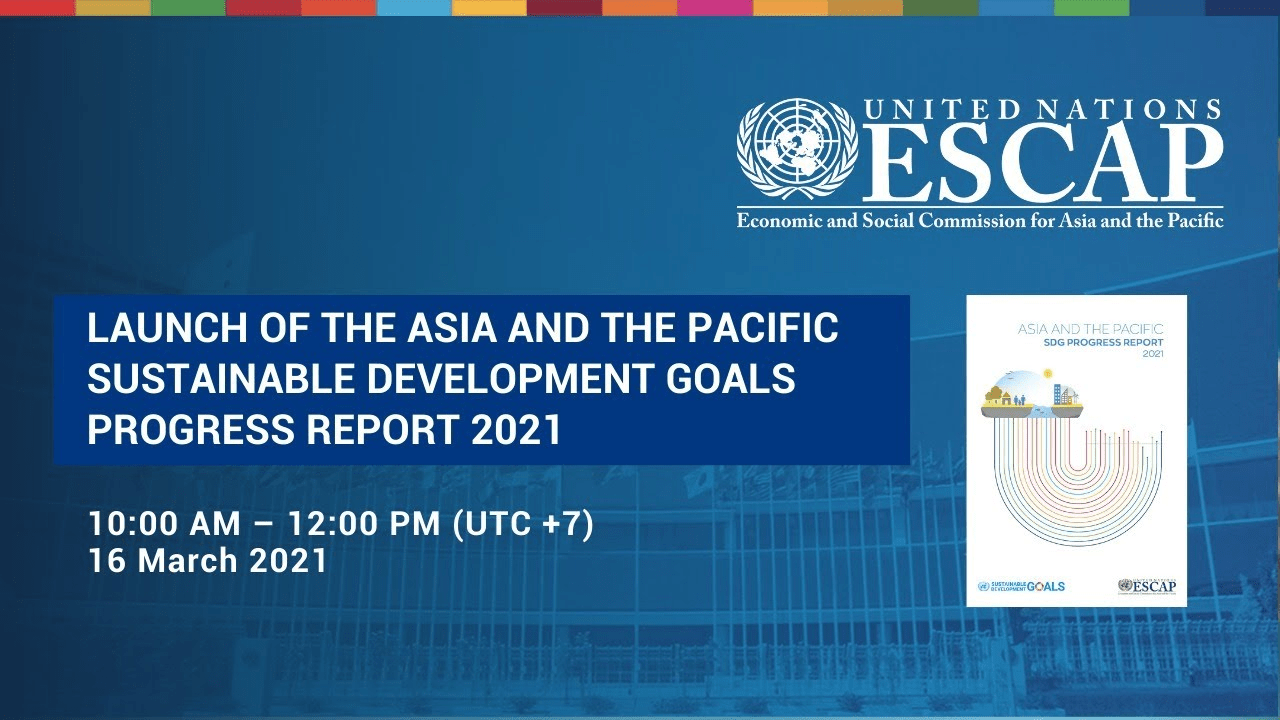The Asia-Pacific region must accelerate progress everywhere and urgently reverse its regressing trends on many Sustainable Development Goals (SDGs) to achieve its ambitions by 2030, says a report released today by the United Nations Economic and Social Commission for Asia and the Pacific (ESCAP).
The 2021 edition of the Asia and the Pacific SDG Progress Report shows that the region fell short of its 2020 milestones for the Goals, even before entering the global pandemic. In the last decade, Asia and the Pacific has made extraordinary progress in good health and well-being, which may partly explain its relative success in reducing the health impact of the COVID-19 pandemic on its population. Yet despite these hard-won gains, the region faces many challenges, such as providing an adequate healthcare workforce, reducing premature deaths and improving mental health.
Presenting the subregional picture for South Asian countries, Dr. Nagesh Kumar, Director of UNESCAP’s South and South-West Asia Office, observed that the subregion made most of its progress on ending poverty, zero hunger and good health and well-being.
However, the subregion is regressing on reduced inequalities, sustainable cities and communities, climate action, life below water and peace, justice and strong institutions. Progress is slow or stagnant on most of the remaining goals. He underlined that the subregion was facing challenges due to natural disasters, lack of access to basic water and sanitation services (with 62 percent of people in rural areas lacking access) and inadequate government spending on education, health services and social protection. To accelerate the progress on SDGs the subregion needs to maintain current progress on poverty reduction to lift an estimated 198 million people out of extreme poverty by 2030.
An alarming observation in the report is regressing climate action trends and life below water. The Asia-Pacific region is responsible for more than half of the global greenhouse gas emissions and adverse impacts of natural disasters on people and economies increase year-by-year. As we find our way out of this pandemic, the report suggests we must focus efforts on more equitable and greener growth.
“Recovery measures are an excellent opportunity for us to rethink our options for development pathways that are inclusive, more resilient, and respect planetary boundaries,” said United Nations Under-Secretary-General and ESCAP Executive Secretary Ms. Armida Salsiah Alisjahbana. “As we enter the Decade of Action to deliver the 2030 Agenda for Sustainable Development, we need to reinforce our collective commitment to the SDGs and let it provide our compass for building back together, better and greener.”
The report highlights the impact of mandatory lockdowns and social distancing measures on data collection activities, particularly from vulnerable groups. To build back better, Governments should renew their commitments to the SDGs’ monitoring framework so that recovery can accelerate a global transformation as promised by the 2030 Agenda.
As part of its commitment to support countries with national level follow-up and review of the SDGs, ESCAP has developed a “National SDG Tracker” tool for countries looking to replicate the progress assessment found in the report. National governments can use the tool to produce snapshots of progress towards the ambitions of the 2030 Agenda.
To download the full Asia and the Pacific SDG Progress Report: Click here
Data source: UNESCAP




